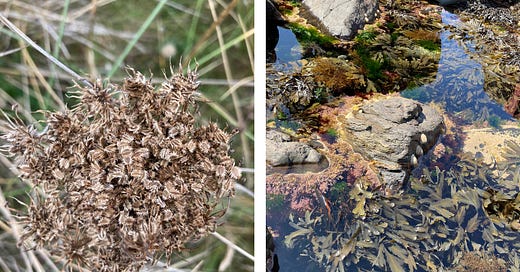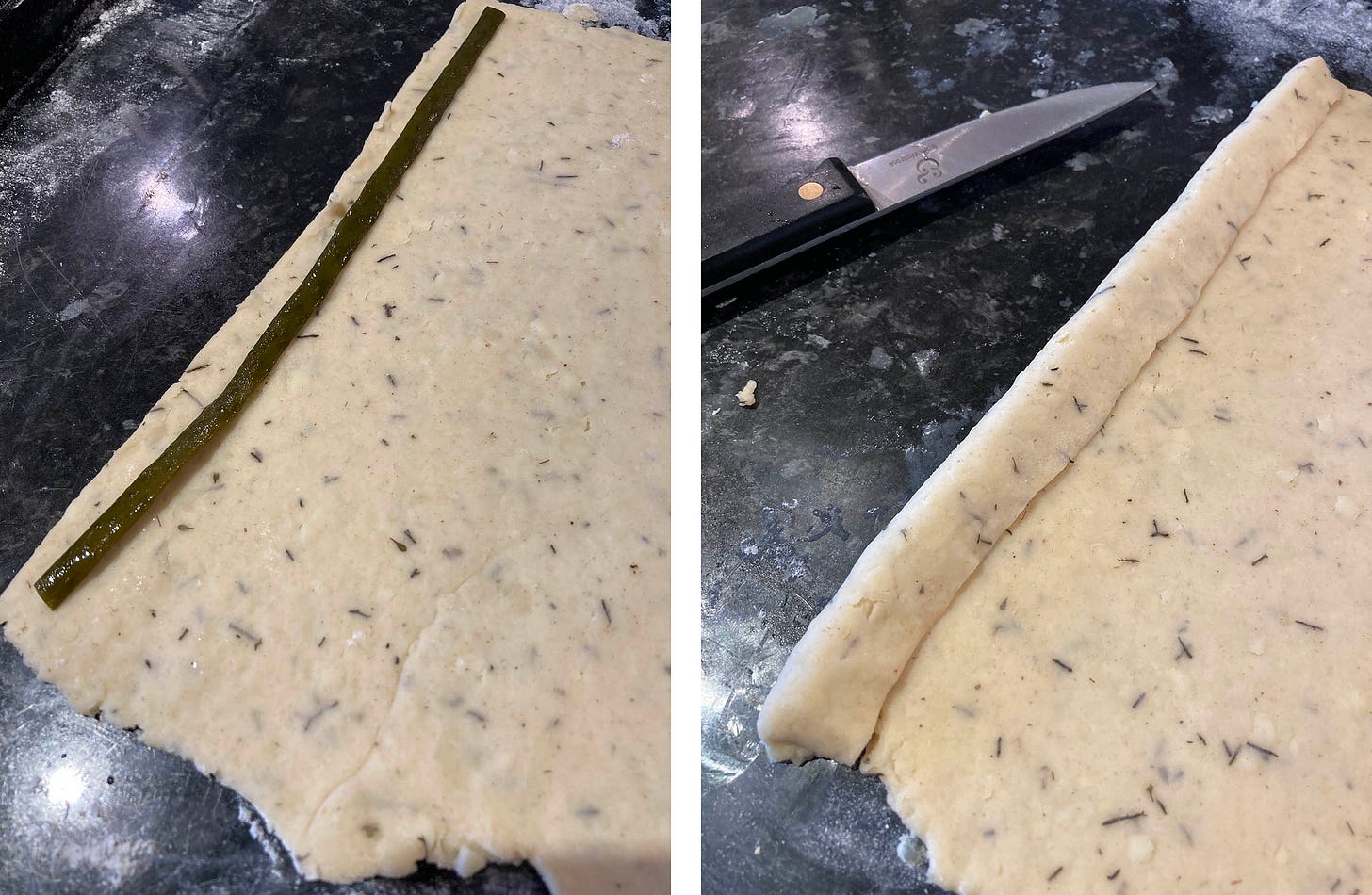Monthly Dispatch
Welcome to the Monthly Dispatch, in which I look back over the last month and share a few stories with you all.
I am writing this on the train to Edinburgh. I am off to visit my sister for her birthday and could not be more excited. I’ve never been to Edinburgh before. It’s going to be an adventure. First though I have two long train journeys to enjoy and endure.
Last Month in the Van Build-
I can’t quite believe it’s been a month and I still don’t have the floor out. I’d planned to get so much further along, but the floor was coated with a spray on polyurethane that has taken hours to peel off chunk by chunk. I finally revealed the wood underneath only to discover the screws holding it in place are so rusty there is no way to unscrew them. It’s frustrating but not impossible to overcome. When I get back from Edinburgh, I shall see what I can do.
Thankfully progress on the van wasn’t solely reliant on floor removal. I’ve also had a few fantastic driving lessons as well, and truly feel as though I’m getting closer. It’s made a lot of people laugh that I bought the van before I knew how to drive it, but I think it’s helping. If I could drive and the build was going this slowly, I would be champing at the bit. As it is I am mostly content plugging along, knowing that somewhere in the not-too-distant future I will have a tiny home and the ability to drive it.
For now, I am trying to give myself permission to work on the van more often, to stop relegating it to one day per week. Hopefully I will succeed, and will have more to tell you in next months dispatch.
Foraging-
The world is changing rapidly, and for the worse. We are destroying the planet we need to survive. It’s the only one we’ve got and while millions of us have marched, and protested, and changed the way we live governments and big businesses refuse to do the same. One of the things that needs to change is the food we eat. I enjoy eating cucumber all year round and strawberries in December, but is enjoying them enough to balance out the damage done to grow so many products out of season or ship them around the globe? Farming and agriculture, from mono-crops and battery farm chickens to mass fishing and palm oil, do a vast amount of damage to our ecosystem. There are solutions to this, they aren’t easy or quick or one size fits all, but we change our diets for the better.
I’ve been slowly changing the way I eat for a few years now, massively reducing the meat I consume and buying it direct from small farms, getting my eggs from the local primary school whose happy chickens spend their days being chatted to by children, giving up seafood unless it’s caught by the local folks with their fishing lines on the beach. I’m inching my way towards a seasonal, local, mostly veg based diet. And much to my joy doing so has only improved the food I cook and the meals I eat.
One of the things I am most excited about when it comes to living in the van is discovering new local ingredients and specialisms across Europe, expanding my culinary experiences. The food adventure that awaits the kitchen I am going to build is thrilling. But I see no reason it should have to wait until the van is ready.
Foraging is something humanity relied on a long time ago. Today, thought it isn’t a solution to the global food problem it is a way to enhance and transform our cooking, and our connection to the natural world. This summer I went on two wild foraging walks with the wonderful Rachel Lambert and had the door to this whole new world opened for me.
From rock pools to hedgerows I was introduced to wild mustard and dulse, sea greens and alexanders, each new treat a delicious addition to my kitchen and taste buds. Some are essentially spices, others closer to vegetables, others still are both depending what time of year you go foraging. All of them are healthy additions to our diets, and, so far, incredibly good for my soul.
I’ve only just scraped the surface of the food out there waiting to be foraged, or the things I can do with it when I bring it home. I can’t wait to discover more.
For weekly updates from A Nomadic Rose, subscribe today! Both free and paid subscriptions available.
Monthly Recipe-
This is a new one, but it ticks so many boxes: pastry, cheese, foraged seaweed. What more could one want?
The original recipe comes from Prannie Rhatigans book Irish Seaweed Kitchen, via Rachels website (which is an incredible resource for all sorts of foraging inspired recipes). I have, someone inevitably, made a few additions of my own, namely using rough puff pastry because I prefer it to short crust.
Sea Spaghetti Cheese Straws with Bladder Wrack Rough Puff Pastry:
Ingredients
250g plain flour
50g wholemeal or rye flour
½ tsp salt
1tbsp olive oil
175g cold butter, cut into 1cm cubes
1 egg yolk
175ml half milk, half water
10g dried sea spaghetti
1 tbsp of lemon juice
75g mature cheddar, grated. You can use whatever cheese you prefer; I’ve now made these with just cheddar and with a cheddar/gruyere mix. I’m planning to try them with Cornish Yarg at some point soon.
½ tsp dried, ground bladder wrack
Black Pepper, to taste
Extra flour for rolling
Toss the flours, salt, pepper, ground bladder wrack in bowl until mixed, then rub through the olive oil until it disappears.
Add the cheese and the cold cubes of butter, then use a wooden spoon to mix them through evenly without breaking them up too much.
Mix the egg yolk with the milk and water, then pour into the bowl. Blend until you have a soft, lump dough. You want to retain the solid cubes of butter as much as possible.
Cover and leave to chill in the fridge for 20-30 minutes.
Scrape out the dough onto a slightly floured surface, lightly dust the top and your rolling pin with more flour. Roll it out into an oblong roughly 20cm by 40cm.
The lumps of butter will stick to the surface and your rolling pin, use extra flour when needed.
Fold it in by one third from the left, then one third from the right. This is known as a blanket fold. Turn the pastry 90 degrees and roll out again before folding once more and placing back in the fridge for another 30 minutes.
Repeat this roll and fold twice more at 30-minute intervals.
Meanwhile, while the pastry is chilling soak the dried sea spaghetti in cold water for 30 minutes. Drain and pat dry (it can stain cloth so choose carefully) then toss with the lemon juice. Leave to marinade for at least 30 minutes.
Once the pastry and the sea spaghetti are both ready roll out the pastry into an oblong one last time.
Lay a strange of sea spaghetti along the length and fold the pastry over it so it is encased within. Neatly cut along the side and make sure it is sealed. Place the completed straw on a plate and make the next one. Repeat until you are out of pastry and sea spaghetti.
Put back in the fridge for 30 minutes.
Preheat the oven to 180C (fan assisted) while the cheese straws are chilling
Put the cheese straws on a non-stick baking tray (I cover mine in greaseproof paper or butter and flour just to be safe).
Bake for 10-15 minutes, keep an eye on them, you are looking for golden brown and crispy.
Leave to cool for 5 mins before moving to a wire rack to cool completely.
They are delicious fresh from the oven, amazing cold, and can be popped back into the over for 5 minutes to be reheated easily. They work well one their own or with dips. I had them for dinner last night. And have a batch in my backpack to help with the journey to Edinburgh. If you want to try these but don’t know have rock pools nearby to go foraging in, the wonderful Cornish Seaweed Company sell it HERE.
Let me know if you try them, I’d love to hear about it. And I promise to share more foraging inspired recipes as I discover them.









